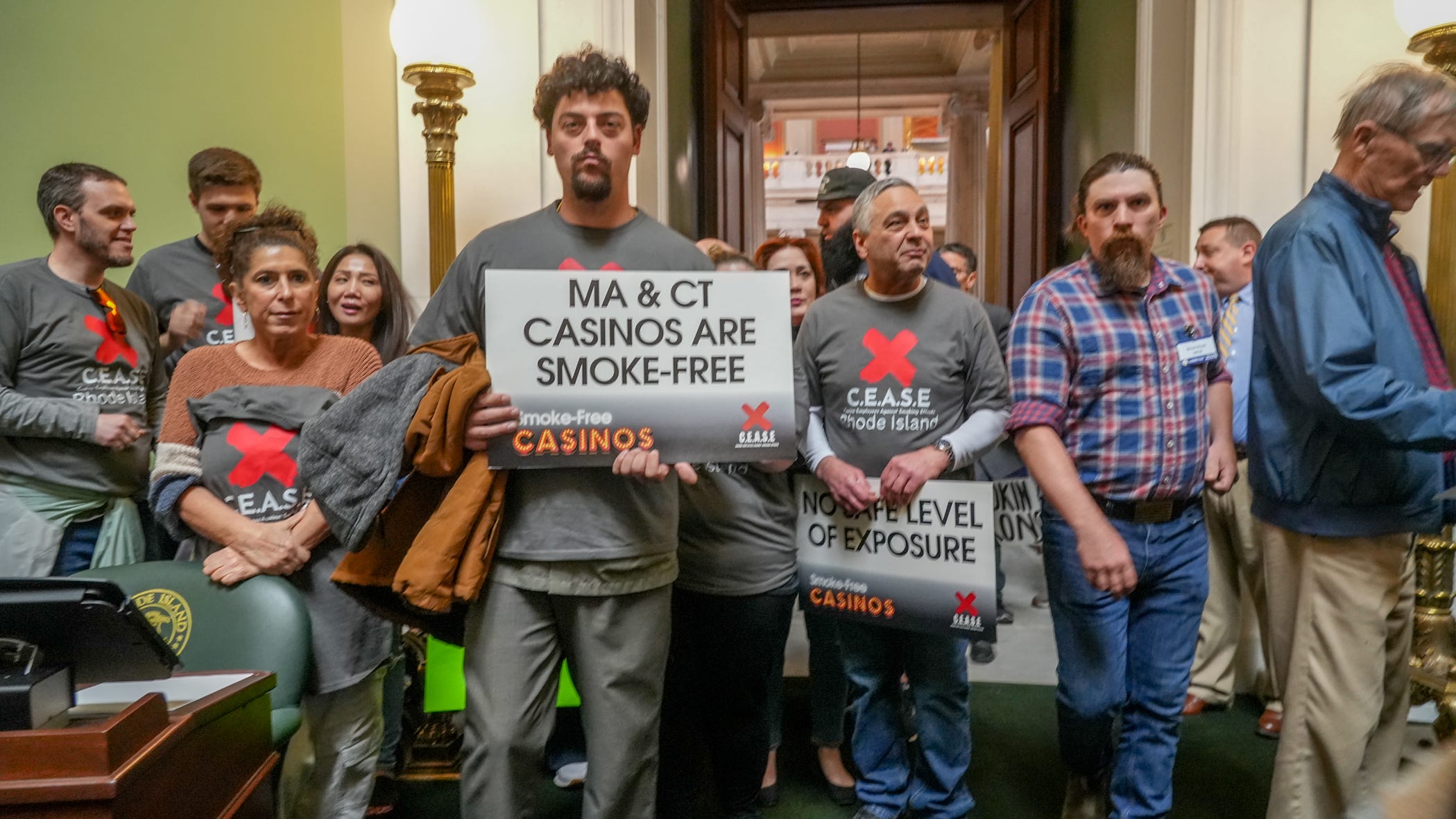

No More Smoke, Say Casino Workers
Rep. Teresa A. Tanzi today introduced legislation (2023 H-5237) to include casinos in the state’s law prohibiting smoking in workplaces.
- A revised version of legislation that Gov. Dan McKee vetoed last year spells out a scheme for taxing kratom and requiring licenses for retailers.
- Critics say that there are still serious questions about the health risks of kratom.
- The Rhode Island Department of Health, which objected to the bill last year, is remaining neutral this time around.
A retooled version of a bill legalizing the sale of kratom, which Gov. Dan McKee vetoed last year, is moving forward in the General Assembly – and being pitched as a compromise that would raise revenue for the state amid a budget crunch.
The House of Representatives approved the legislation, officially known as H5566A and unofficially known as the Rhode Island Kratom Act, on May 29 on a 40-23 vote.
Though the Rhode Island Medical Society remains opposed to legalizing kratom, key state agencies such as the Rhode Island Department of Health are staying neutral this time around – and the bill isn’t necessarily dead on arrival.
“The Kratom legislation pending in the General Assembly is different than last year’s bill, so the Governor will carefully review the final bill that reaches his desk, if and when it does,” said Olivia DaRocha, a spokeswoman for McKee.
What is kratom?
Kratom is a psychoactive herb derived from the leaves of an Indonesian tree. It’s often found in capsules, drinks and gummies sold at gas stations, smoke shops and convenience stores that can contain other dangerous chemicals.
Proponents say that kratom can be a safer alternative to opioids, but that’s not backed by peer-reviewed scientific studies – and there’s considerable debate about its potential health risks and the likelihood of abuse or addiction.
Last year, the U.S. Food and Drug Administration released preliminary results from a small, early study that suggested that kratom was generally safe when consumed in unadulerated capsule form – meaning that it didn’t have severe or life-threatening side effects.
But kratom-based concentrates and drinks, which are widely available in the United States and often more potent, weren’t included in the study, Bloomberg reported. (Kratom is legal at the federal level but banned in Rhode Island and a handful of other states.)
The kratom lobby argues that the real risk lies in adulterated products, and that kratom should be regulated rather than banned outright. Lawmakers seeking to overturn Rhode Island’s ban have pointed out that sketchy kratom products are already being sold on the black market.
Last year’s bill flew through the General Assembly in the final hours of the legislative session. Some lawmakers later said they didn’t feel as though they had enough information to make an informed decision, and they were inundated by spam emails urging them to support the bill.
Health department declines to take stance on bill
The revised kratom bill is sponsored by Rep. Brian Patrick Kennedy, D-Hopkinton, and Sen. Hanna Gallo, D-Cranston. At an April 8 hearing. Gallo described it as a “compromise developed in collaboration with the administration” after a year of work.
Kennedy said that McKee, after vetoing the bill last year, told him, “Let’s work on this and try to create a piece of legislation that will work for the state of Rhode Island.”
The revised version reflects input from the state health department, the Department of Behavioral Healthcare, Developmental Disabilities & Hospitals and the Department of Revenue and “is very different than the act that we saw last year,” he told the House Committee on Corporations.
Health department spokesman Joseph Wendelken said the agency “worked with our partners in the administration to provide technical feedback on some portions of this proposal prior to introduction to address product quality concerns” and does not have a position on the legislation at this time.
Speaking on the House floor on Thursday, Rep. Michelle McGaw, D-Portsmouth, pointed out that the state Department of Health and Department of Behavioral Healthcare, Developmental Disabilities & Hospitals didn’t submit letters in support of the bill. She also cited testimony from local rehab centers that have reported treating patients with symptoms of kratom withdrawal.
“There’s a lot of concerns out there in the medical community, and while maybe some of our agencies have agreed to monitor and tax the product, the medical safety concerns of this have not been cleared up,” McGaw said.
What’s different this time?
Most of the changes to the bill are fairly technical, and deal with how kratom would be taxed and regulated. In its new incarnation, the legislation would require retailers to be licensed by the Department of Health and would impose a 15% tax on all kratom products.
While legalizing kratom won’t close the state’s budget deficit, it “will create new revenues in the state of Rhode Island,” Kennedy said at the April hearing.
The new bill also prohibits kratom products that contain “a substance other than a non-psychoactive substance necessary for the preparation, processing, or manufacturing of said product.” That would prevent retailers from selling kratom mixed with kava, another controversial herbal substance.
At the April committee hearing, Walker Gallman, a lobbyist for the Global Kratom Coalition, objected and noted that caffeine is also considered a psychoactive substance. But Kirsten Smith, a kratom researcher at Johns Hopkins University who testified in support of the bill, said the restriction made sense.
“I don’t think we should be mixing psychoactive products,” she said.
Roughly a dozen House Democrats joined Republicans in voting against the bill on May 29. The Senate version of the bill, S792, has yet to make it out of committee.









